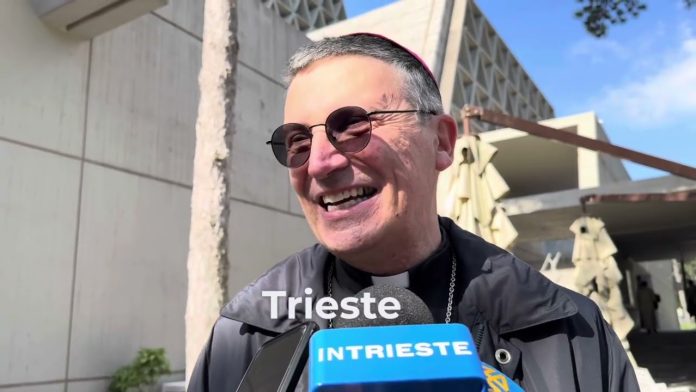by InTrieste
In a strongly worded letter released on Wednesday, Enrico Trevisi, the Bishop of Trieste, issued a public appeal for peace, condemning the ongoing violence in Gaza and drawing attention to lesser-known humanitarian crises around the world.
“War has always been a horror,” Bishop Trevisi wrote in the open letter. “And the consequences have not been borne only by heroes or patriots, but by ordinary people—often unarmed civilians of all ages: killed, deported, imprisoned, tortured, left to die from deprivation, infections, or hunger.”
His message, while rooted in moral and humanitarian concern, steered clear of direct political alignment, offering a somber reflection on the recurring tragedies of war throughout history and into the present.
Bishop Trevisi specifically pointed to the violence in Gaza, describing the situation as one in which diplomacy has been persistently sidelined in favor of destruction. “We are horrified and feel powerless in the face of what is happening in Gaza,” he wrote. “There is a persistent refusal to give diplomacy a chance, and instead an insistence on extermination.”
The bishop’s appeal also cited the conflict in Sudan—an ongoing humanitarian disaster he lamented as largely ignored by mainstream media—as well as reports of abuse of Ukrainian prisoners of war and the abduction of Ukrainian children by Russian forces. He touched briefly on the fragile peace in the Democratic Republic of Congo, expressing hope despite past disappointments.
While not naming specific governments or military operations, the bishop’s language conveyed deep frustration with what he perceives as a global indifference to civilian suffering and a lack of genuine efforts toward peaceful resolution.
The letter comes at a time when European religious leaders are increasingly speaking out against global violence, urging not only national governments but also the international community to prioritize humanitarian dialogue over military escalation.
Bishop Trevisi concluded with a renewed call for compassion, moral responsibility, and the pursuit of peace through non-violent means.
The Diocese of Trieste confirmed the letter was being distributed to parishes and made available online as part of a broader effort to engage citizens in reflection and action.
There has been no official response from Italian or international officials as of this writing.






























